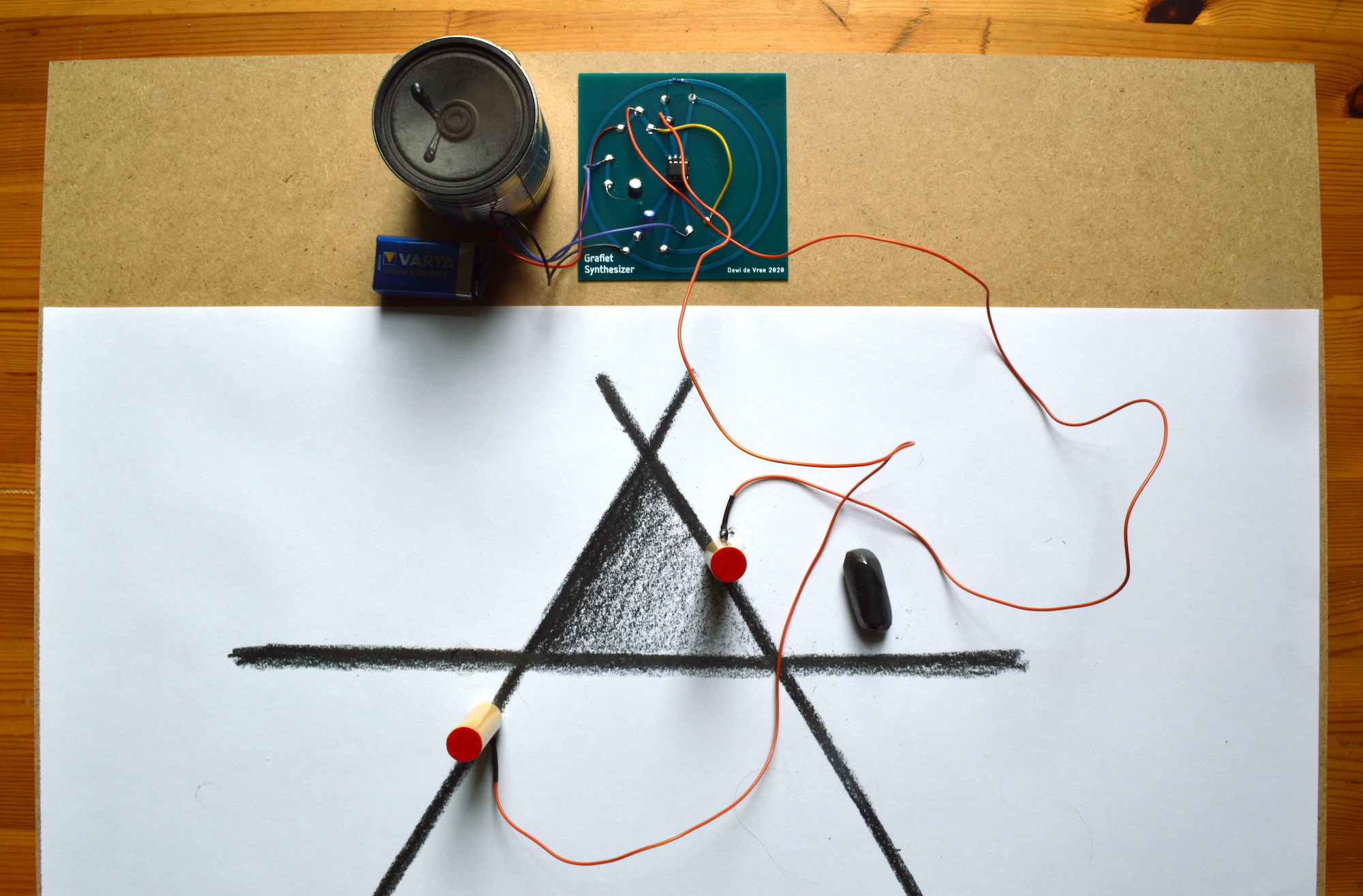
Starting Points
In Spring 2020, members of iii took 2 education coaching sessions with Zoe Reddy from Rewire Education, 3 sessions from Ria Sluiter from Technasium, and 3 coaching sessions from Anne Nigten from the Patching Zone. The purpose of these coaching sessions was to get input and feedback for developing iii’s workshop program. This report summarizes what we have learned in these sessions and what we will implement in our own education team.
iii is an organisation completely run by artists. We believe that artist-run organisations play a fundamental role within the cultural sector, offering a contribution to the sector that is clearly differentiated from what other types of institutions offer.
As our organisation and program continue to grow, it became clear that we lacked some of the expertise expected from a cultural organisation in areas such as business, administration, education and PR. This coaching trajectory was aimed at increasing our internal organisational capacity. We expected this trajectory to support the growth of our organisation so that we can reach our goals more effectively, without changing the basic form and values of the organisation.
Background
iii started an art and technology workshop program in 2019 as a way to share the skills and knowledge of our network of artists with other local artists to learn new skills, and with a larger and diverse non-professional audience. We aim to significantly grow our educational activities so that it becomes a substantial part of our program.
The following are goals that we set in our original proposal for the professionalizing coaching sessions. Some of these have changed after input from our coaching sessions.
Goals
The budget for the educational program will increase from €10,000 in 2019 and €15,000 in 2020 to €50,000 in 2021-2024.
We aim to increase the total audience reach of our educational program from approximately 50 people per year in 2019 to 400 in 2021-2024.
The number of hosted workshops per year will increase from 6 in 2019 and 8 in 2020, to 12-16 in 2021-2024.
The attendance of hosted workshops will increase from around 5-10 people per workshop in 2019 to 10-15 in 2021-2024.
We will initiate a new circulation program for educational workshops in partnership with third parties able to distribute our workshops within schools and festivals. We aim to give a total of 20-25 workshops per year through this circulation program.
We will develop workshops that can engage with different target audiences including our surrounding neighbourhoods of Moerwijk, Schilderswijk and Laak in The Hague.
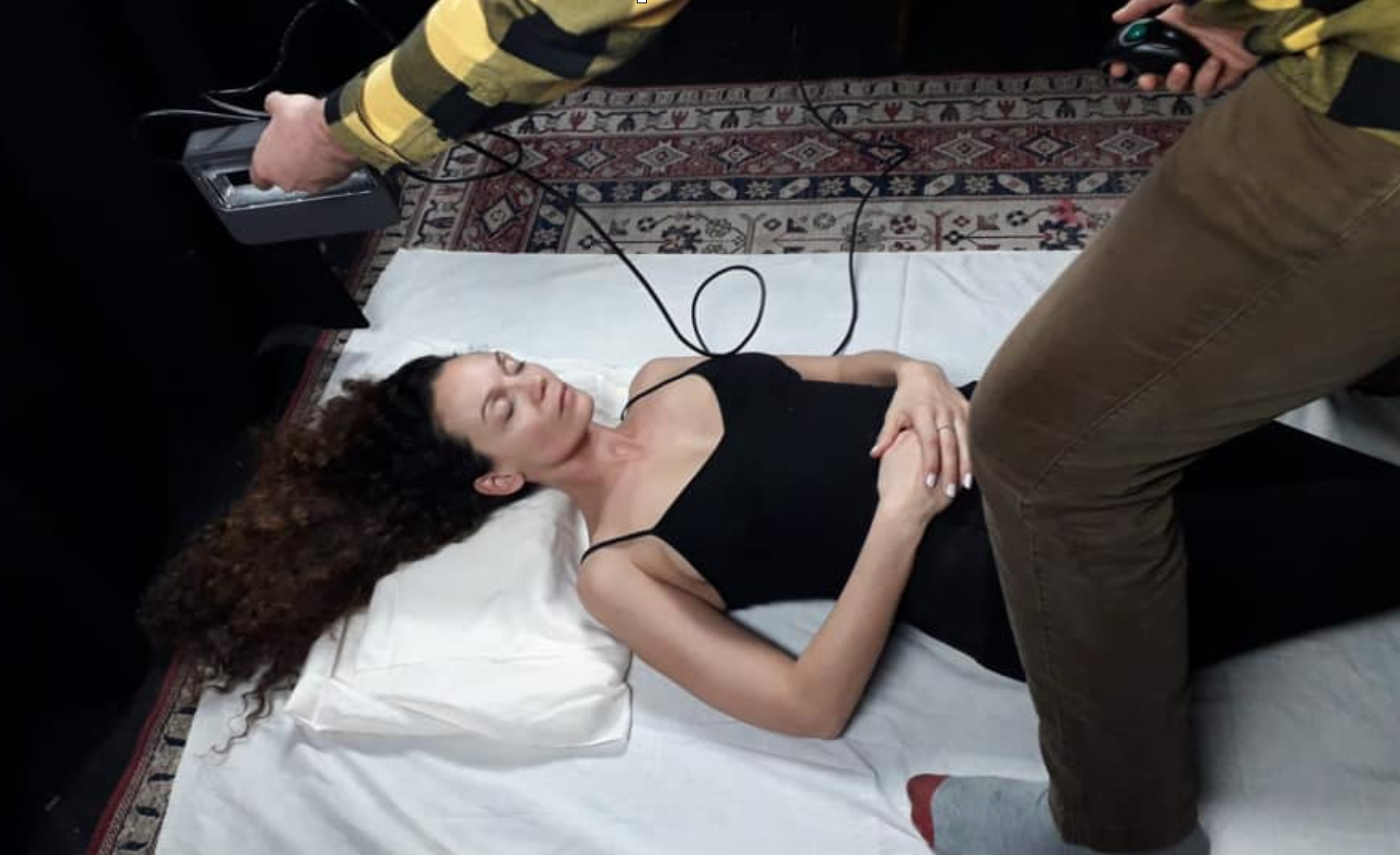
Coaching Sessions with Ria Sluiter
Ria’s experience as director of Technasium was particularly helpful to us in terms of developing a sustainable business plan, identifying smart partnerships, and understanding how we can translate the values and themes of iii into the workshops themselves.
In our first coaching session, Ria outlined how Technasium worked, explained a typical schedule in middle schools and to highschools, and how R&D (research and development) projects from Technasium were integrated into these schedules. We learned that work sessions for these R&D projects usually took place over the course of 5 hours once a week and that these sessions allowed time for lab tests, participants to see each other’s work, and time to work on their own parts.
Ria also introduced competencies, which are learning goals (such as entrepreneurial skills, collaborative work, evaluation) in addition to lesson goals (specific skills or research topics). She also asked essential questions about how we identified the role of iii in a circulated workshop, what kinds of projects we could develop from our program themes, what our competencies were, how we could stand out as an artist-run workshop program.
In terms of developing workshops or projects themselves, Technasium always poses real and relevant problems that participants of any age could tackle. These workshops and projects are also adapted for different age groups so that older students are treated more like partners and collaborators who can pitch their own ideas, whereas younger students are offered smaller projects where they can create a project using pre-existing technology or concepts.
Another key part we focused on was partnerships and how they can factor into our reach, project impact, financial plan, and the different connections we can make through them. In addition to different schools, Technasium partners with government departments, companies and their partners.
In these partnerships, it is important to think about how each entity defines its roles (role of expert or client), how we can bring the goals of different partners together, and how to co-create. Who we partner with will also affect the reach and impact of these projects.
For example, Technasium sometimes works with multiple schools at the same time which mixes the dynamic of the projects. They also think about where students can give presentations about their work and organize exchanges in different-income neighbourhoods.
This way, the work of students have a larger impact beyond their own class or school. Eg. Technasium often partners with universities or companies so that students get to work with real experts in the field on real projects and sometimes also present their ideas in public.
In our second and third sessions, Ria gave us feedback on our program proposal and budget. In these sessions she advised us on reach goals, realistic budgets, and fair pay in an educational context. She also made recommendations for our competencies in relation to how we can appeal to different schools or make room for collaboration on the competencies.
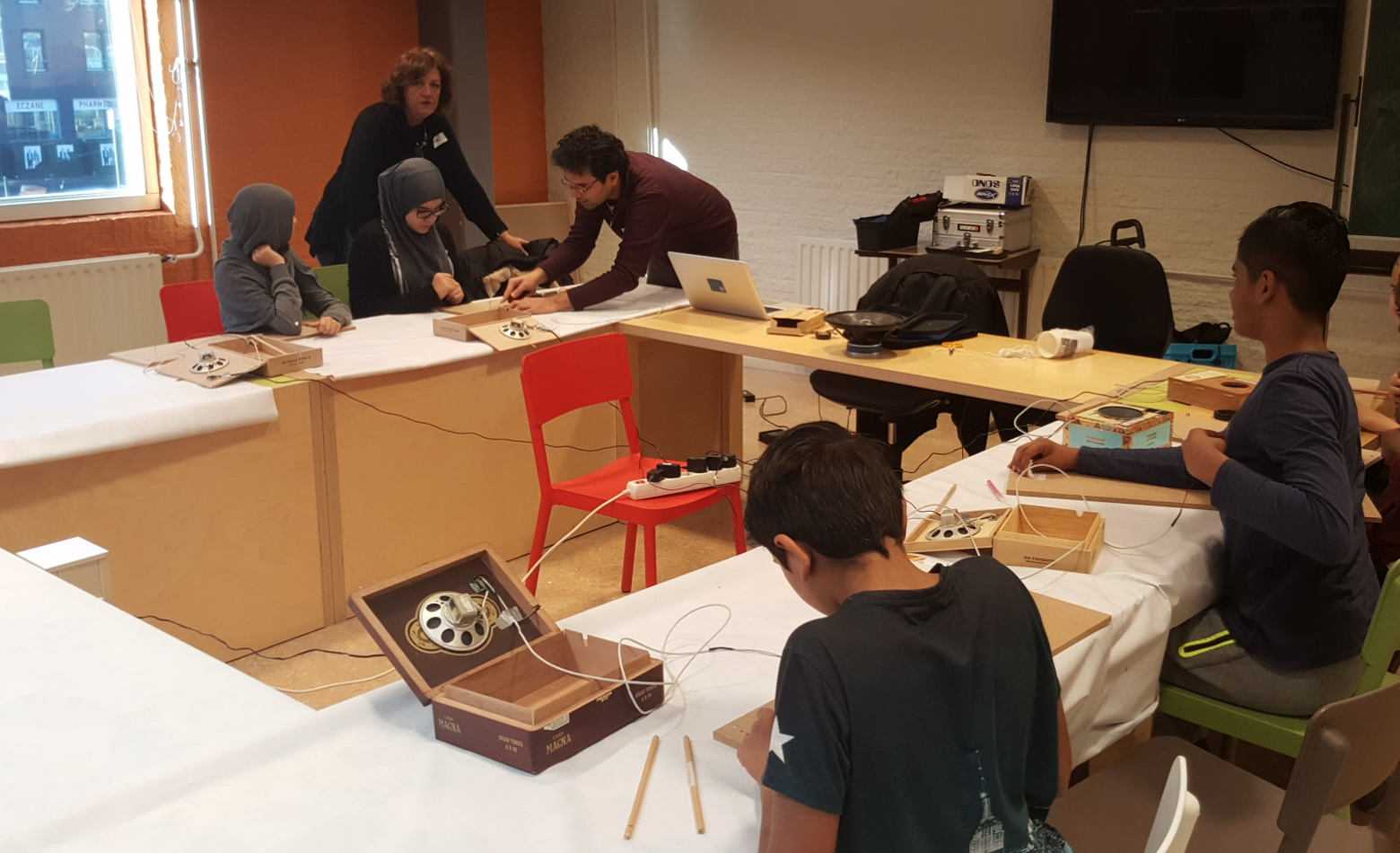
Coaching Sessions with Zoe Reddy
In our first coaching session, Zoe walked us through the different steps and considerations of developing a cultural education program, from establishing core objectives, reviewing Dutch educational guidelines, identifying target audiences, reviewing the market, researching school contact information, preparing concepts, developing a clear format, testing ideas, preparing a promotional and acquisition plan, budgeting, and teaching and dividing tasks amongst the education program team.
We began by focusing on different ways that cultural education can fit in and complement the Dutch education system. We went through the structure of primary and middle schools in Dutch and international systems, while also highlighting general capabilities and core learning objectives for each group.
We discussed trends and developments of cultural education, how to develop content for different target groups, and how to transform creative experiences such as sound walks into educational experiences.
We talked about some key strategies of developing a network of schools for our circulated program, and promotional tools for our workshop program (brochures, videos, high quality photos). We also discussed how to create workshops for the festival context and how to transform artistic works into educational experiences.
Our second session with Zoe was a feedback session for our workshop program plan. We focused on defining our target audience for each workshop, defining workshop types and costs, how to assemble a clear workshop profile to appeal to schools, and how to set starting costs of our workshops depending on the audience (school vs. festival).
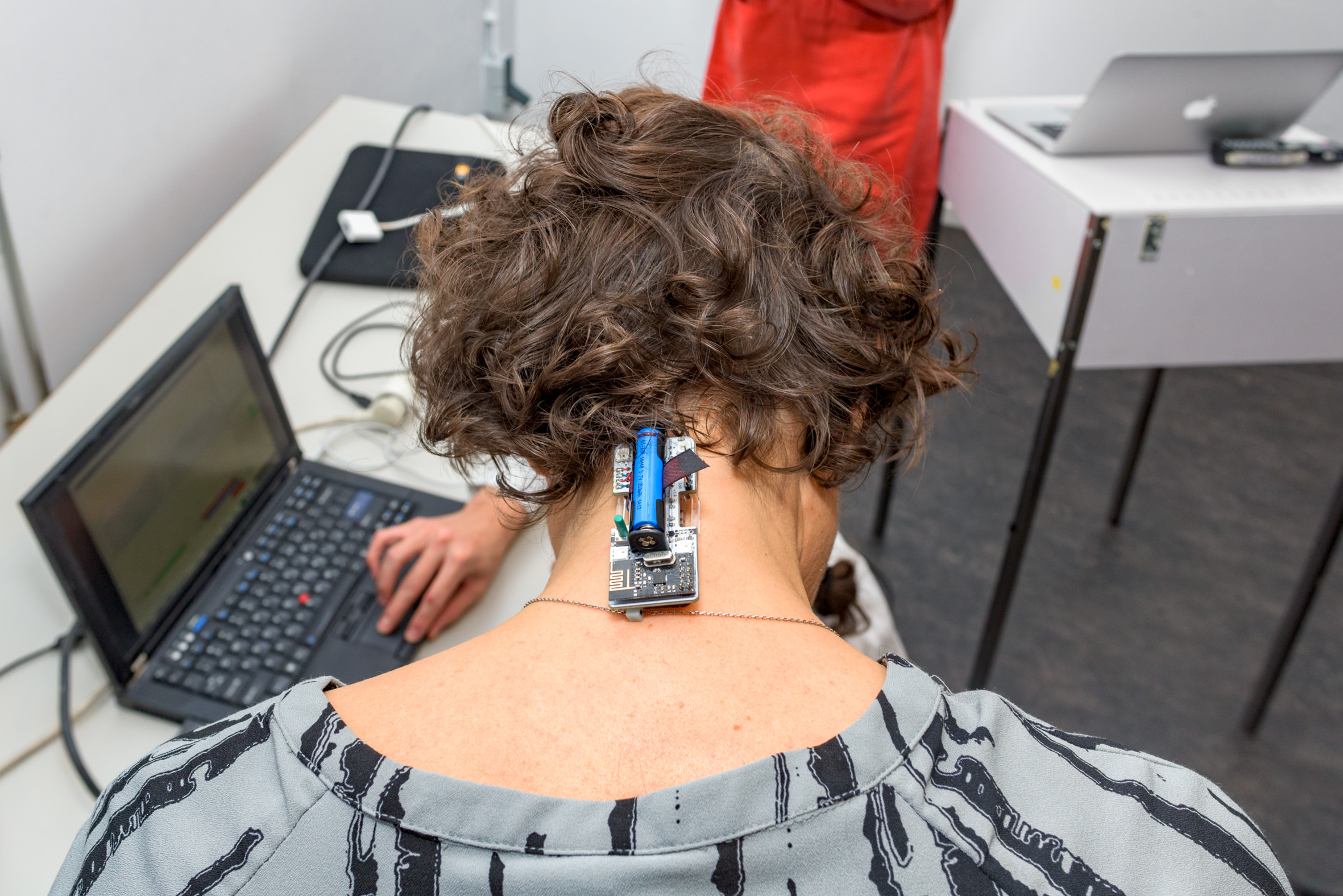
Coaching Sessions with Anne Nigten
During our coaching sessions, Anne Nigten was able to offer us insights from her experience as a researcher, professor at Rotterdam University of Applied Sciences, and managing director of The Patching Zone, a transdisciplinary R&D media lab.
In our first session, we looked at how to run a non-profit creative enterprise, how to manage the two aspects of creative industry and educational section of our program, how to narrow down our core values, and how to develop a program that stays true to these goals. We also discussed the importance of diversifying revenue streams and the pros and cons of different financing options, including those of private funds, research subsidies, sponsorships, and culture passes.
Together we discussed what iii’s vision was, what kinds of workshops we wanted to give and assigned suitable target groups for each workshop type.
We made our audience groups as specific as possible, listing demographics in terms of a combination of free time versus school time, age group, amateur/professional. We then listed where we could find these groups and what channels we would use to reach them.
We then went through what is called a laddering process in order to get to the core essence of why we wanted the workshop program. This process involves going through all the reasons why we want to do educational activities until we get to a point where we no longer need to ask why.
Together we discussed what iii’s vision was, what kinds of workshops we wanted to give and assigned suitable target groups for each workshop type.
We made our audience groups as specific as possible, listing demographics in terms of a combination of free time versus school time, age group, amateur/professional. We then listed where we could find these groups and what channels we would use to reach them.
We then went through what is called a laddering process in order to get to the core essence of why we wanted the workshop program. This process involves going through all the reasons why we want to do educational activities until we get to a point where we no longer need to ask why.
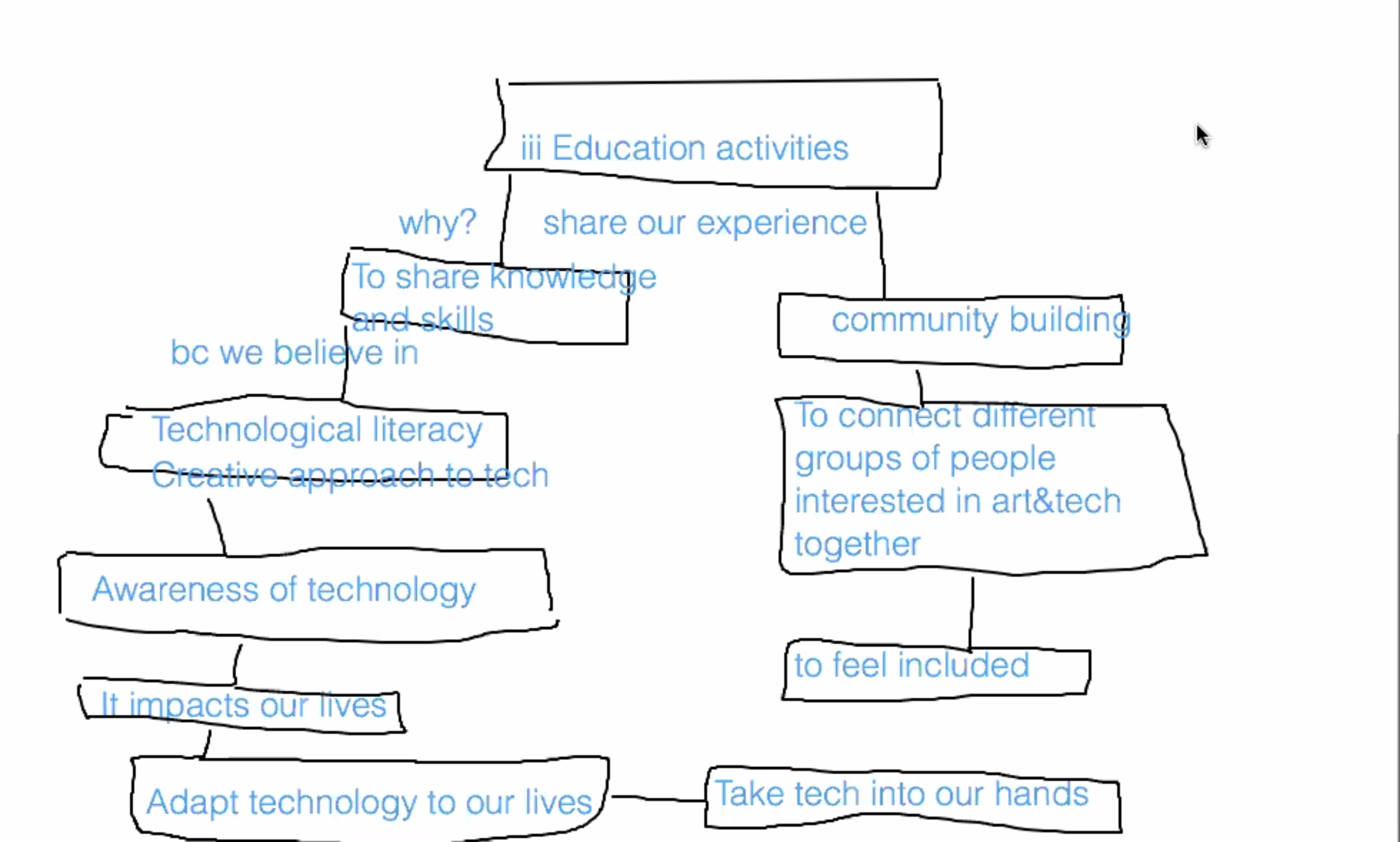
Eventually we got to the core reason behind the workshops which is:
“iii aims to empower people to take technology into their own hands while also providing artists with a source of income.”
This statement forms the basis of our principles which help decide what activities we should take on. If a proposed activity or if the structure of the program does not fit these values or support them, then we simply should not implement it.
Finally, we ended this first coaching session with a draft timeline of our activities, which showed the development of our audience reach goals, the gradual expansion of the program, and the steps we would need to take to reach these goals.
On day 2, we re-examined our target audience groups and our timeline, and evaluated whether or not these were realistic goals.
We then identified our existing audience, and brainstormed ways to tap into new audiences. We also listed our stakeholders which included schools, festivals, cultural institutions and other related organizations that were slightly outside of the creative industry.
We then ran the proposed plan through a feasibility and value and goals check, passing each event through various questions stemming from the basics of “who what where when why Which” questions:
Why are we doing it?
This is an opportunity to check if each activity resonates with the core values. Do we have the expertise and interest to do this activity within the organization?
Who are our participants and where do they come from?
If the target group is new, where do we find them?
If we are looking for a new group of participants then which external partners should we contact to reach this group?
What would make this activity successful?
Here we define our measurements of success and means of evaluating it. For example, if the activity does not attract enough people or covering the costs, it’s not successful. If it generates PR for the organization it’s successful.
Which category does the event belong to?
How do we realize this project? How do we reach the desired audience? How often will this activity happen? How will it be financed?
When is the activity happening?
Next Steps
Based on the input and discussion we had during our coaching sessions, we have come up with a workshop program structure where workshops developed in the hosted program at iii coordinated by Yun Lee will be distributed through the agency managed by Anastasia Loginova, and also through the school acquisition plan headed by Wen Chin Fu.
What: Re-evaluated Goals
Looking back on the goals we set before our coaching sessions, we would like to make a few adjustments and additional comments to the following goals:
-
- We aim to increase the total audience reach of our educational program from approximately 50 people per year in 2019 to 400 in 2021-2024.
- The number of hosted workshops per year will increase from 6 in 2019 and 8 in 2020, to 12-16 in 2021-2024.
The attendance of hosted workshops will increase from around 5-10 people per workshop in 2019 to 10-15 in 2021-2024.
Our more concrete plan for our 2021 hosted workshop program:
Each activity needs to be able to match our core values and reach the goals we set for ourselves. This feasibility check ensures that the activities we carry out match the expertise we have, meets our needs and the needs of our stakeholders, matches the approach and methods of internal and external stakeholders, and is ultimately feasible.
It also helps us make calculations for a realistic business model by pushing us to come up with strategies to reach the audience we need to reach, setting reasonable goals, and making the structure of our program flexible enough to run even when we are not able to reach our minimum funding or audience requirements.
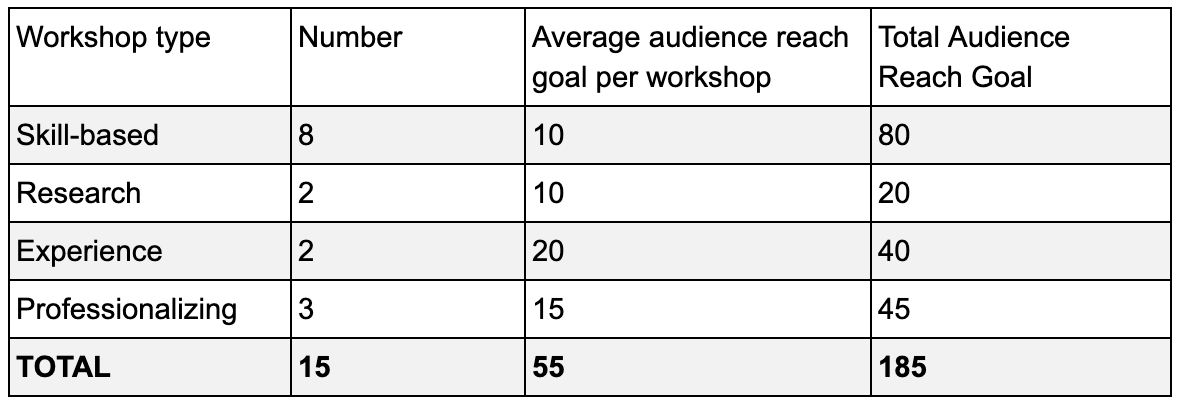
Within the first semester of 2020 alone, our audience reach has already increased to 11-14 participants per workshop. However, in order to respect the capacities of more intimate workshops, we want to develop workshops that allow a range of maximum participation numbers. While some workshops have a more exclusive maximum participation number of 8 people, we are also planning some workshops that can allow up to 25 participants. This will balance out the overall reach.
From 2022 we will also try to host master classes.
-
- We will initiate a new circulation program for educational workshops in partnership with third parties able to distribute our workshops within schools and festivals. We aim to give a total of 20-25 workshops per year through this circulation program.
We will develop workshops that can engage with different target audiences including our surrounding neighbourhoods of Moerwijk, Schilderswijk and Laak in The Hague.
Our strategy to reach these audiences consists of creating specific promotional materials to approach local schools with, and partnering with local educational programs and organizations. We are currently developing relationships with Cultuurschakel, Laak theater, and IMC weekend school to help us reach children in the neighborhood. We are also talking to Rewire Education and Technasium to co-develop workshops for their network of schools. We also plan to offer workshops to children’s festivals such as Cinekid Festival and Festival de Betovering.
Program Structure
Within the hosted program, we will be working with four themes derived from iii’s program themes: Art of Senses, Instrument Building, Life in the Digital Age, and Embodied Technologies. These themes will also serve as series titles under which workshops touching on similar subjects can find continuity and coherence.

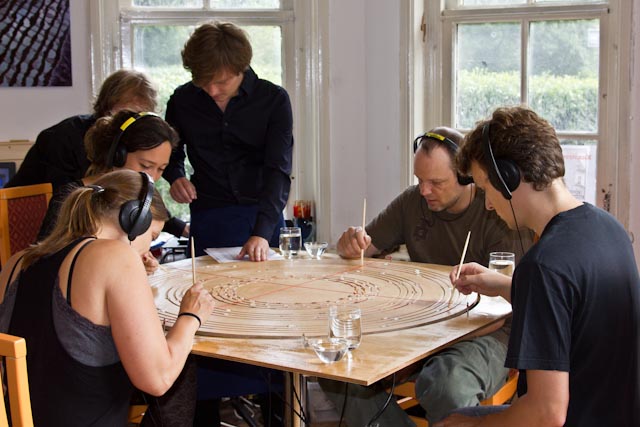
Art of Senses workshops focus on analyzing, manipulating, augmenting, re-mapping and creating with human and non-human senses beyond sight: smell, hearing, taste and touch.
Example workshops: Tactile acoustics, Smell synthesis, Hacking the urban acoustic landscape
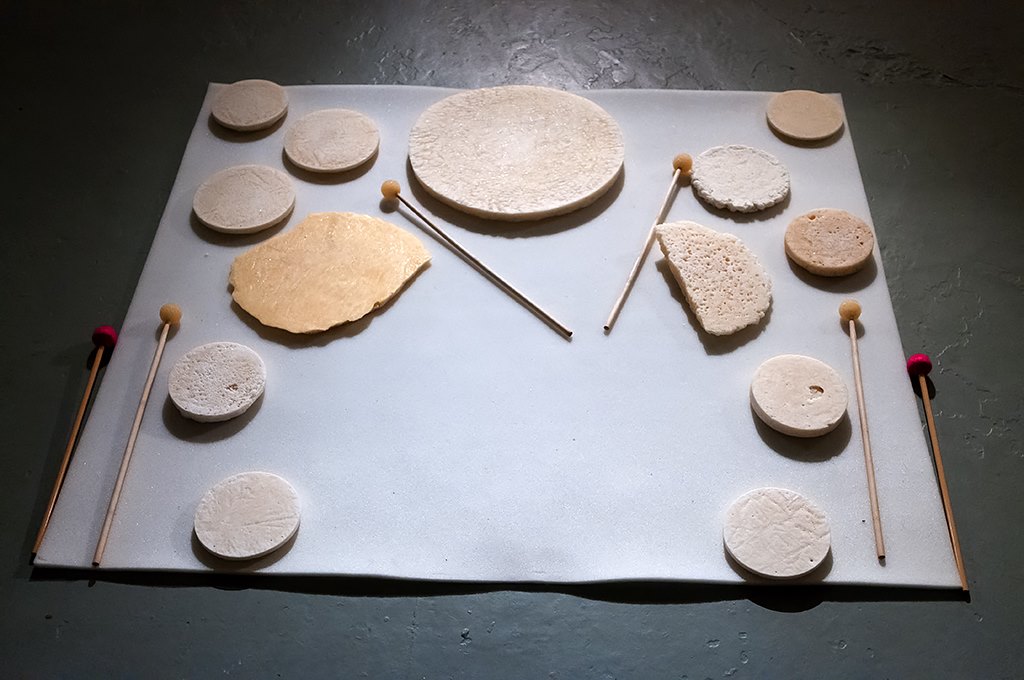
Instrument building workshops allow artists to share skills in developing, modifying, or playing specific instruments. We use “instrument” in the broadest sense to mean tools or technology that we perform with.
Example workshops: Sugar instrument, Graphite synthesizer, Crystal radio workshop
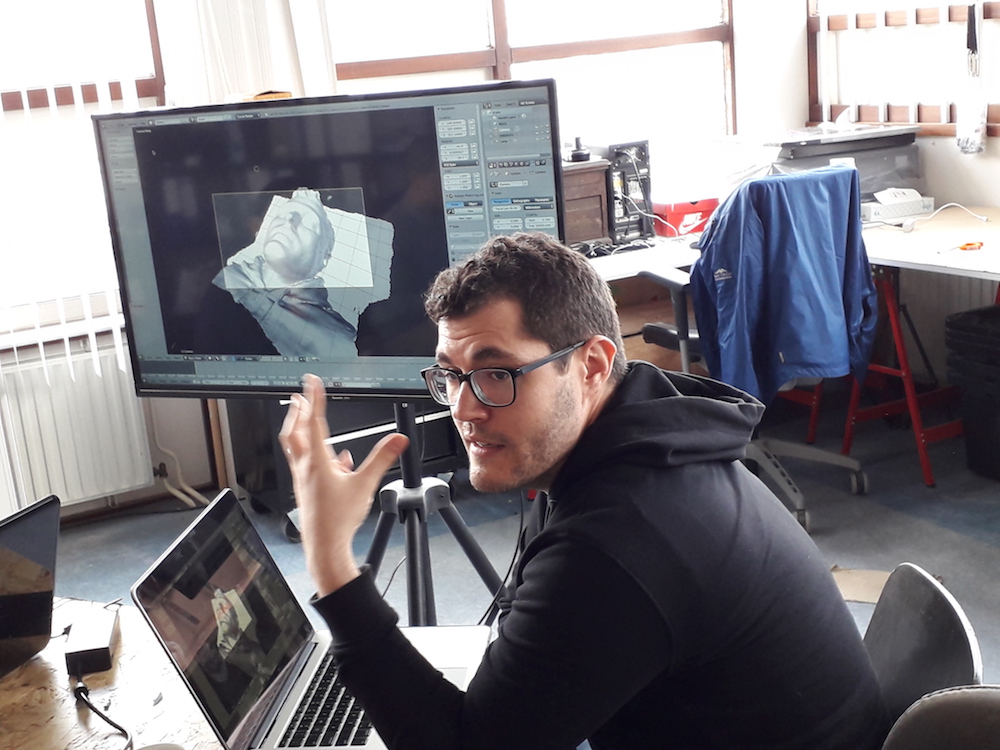
Life in the digital age workshops explore living in the age of the internet with endless digital tools, the creative potential it provides, and also its cultural, political, and ethical implications.
Example workshops: Expressing data, Preparing for the digital afterlife, Creative coding
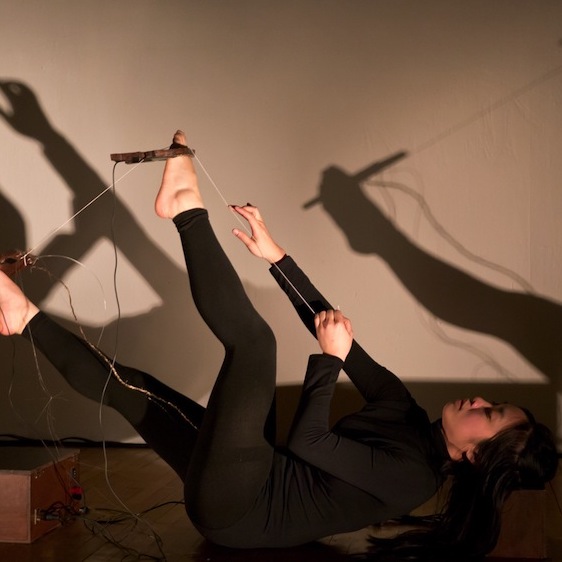
Embodied Technologies
As artists working at the intersections of art and technology, we are constantly looking into the most current methods, techniques, and stories to make new work. But we often overlook what we can learn from other disciplines that have been long-established. What can an instrument builder learn from a puppeteer? What can an illusionist teach digital storytellers and sound artists? How can movement research be applied to the practice of non-dancers?
Workshop Types
Skill-based workshops are focused on acquiring skills and knowledge with a project goal in mind.
Research projects are based on a research question and involve both theoretical and practical aspects. These projects allow participants to contribute their background knowledge and experience while developing projects (individually or in a group) under the mentorship of a facilitator.
Experiences are one-time, often playful artistic experiences that audiences actively participate in. These are connected to festivals or can also be preview sessions before an event. Examples of this include sound walks, games, and guided preview tours of exhibitions or “meet the artist” sessions before performances.
Talent Development workshops aim to help young artists professionalize themselves by offering communication and entrepreneurship skills that may not have been taught in art school. These workshops are aimed at artists looking to develop professionalizing skills while also broadening their network.
Artist Masterclasses are a new workshop type that we would like to develop and pursue by 2022. These classes are led by high-profile invited international guests brought to The Hague either through the iii residency program or in partnership with an academic institution.
Audience
Our current core audience consists of our peers (professional artists, students, researchers, STEM professionals) and amateur adults (amateurs looking to get into the creative field or wanting to acquire technical skills, amateurs looking to get to another level in their craft, festival-attendees, art and technology enthusiasts).
From 2021-2024, we want to grow our reach by targeting the following audiences:
Kids free time: primary school ages 9-12 from the surrounding neighbourhood and kids of artists in our network. The objective is to bring a mix of these two kid groups together at our hosted program.
School-time: Primary schools in Moerwijk, Laak and Hague international schools (ages 9-12) Secondary schools in Moerwijk, Laak, Schilderswijk, international schools in The Hague, dual language schools in The Hague (ages 9-12 and ages 13-15)
Private: Businesses seeking team-building workshops. The objective of this is to adapt skill-based workshops to suit team-building needs of businesses in order to generate an income for the overall workshop program.
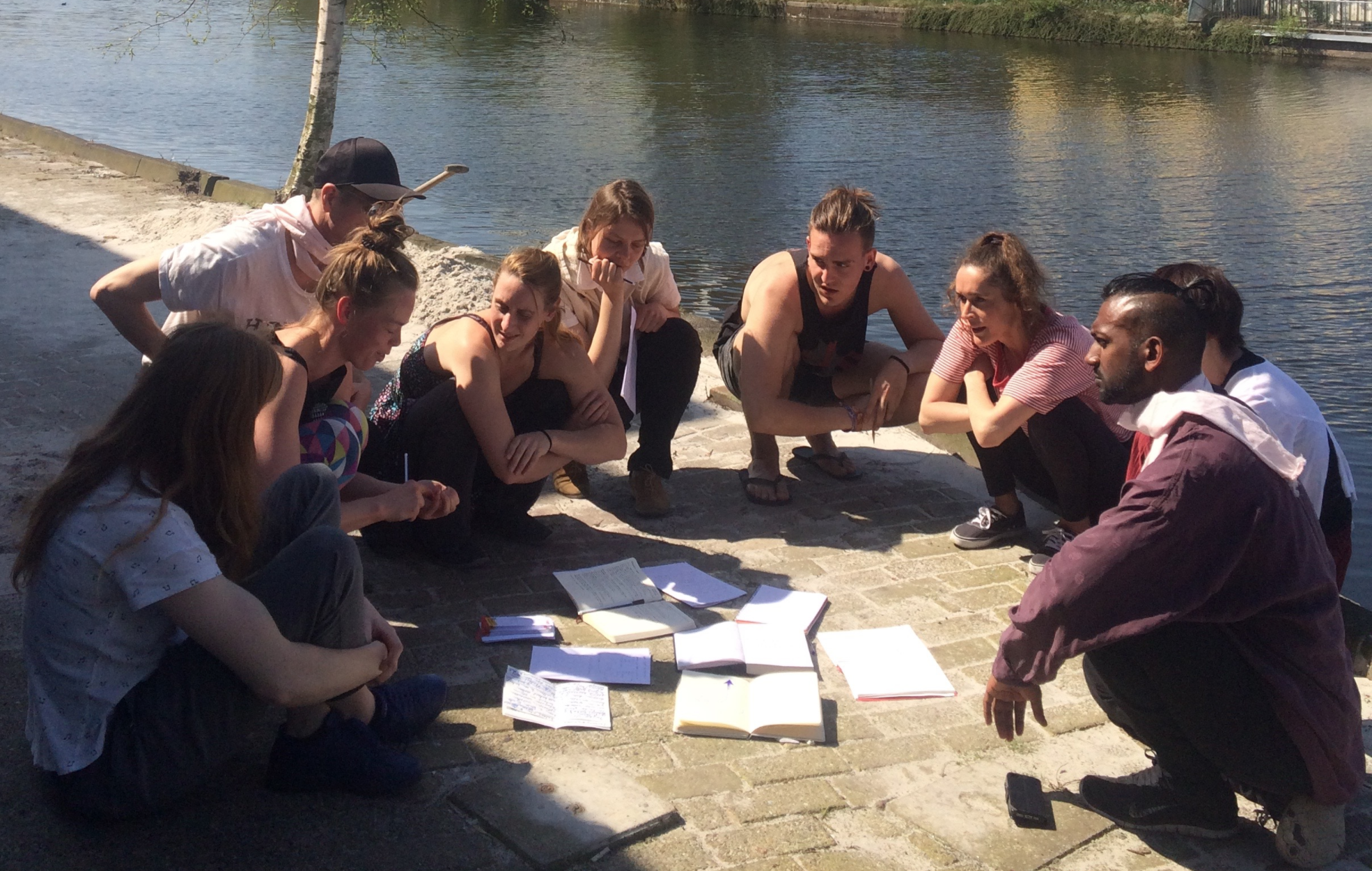
Business Plan
Taking advice from the coaching sessions, the workshop program business plan is based on making smart partnerships and diversifying income sources so as not to become too dependent on any one source.
The hosted program will be supported through a combination of funds from the Municipality of The Hague, Creative Industries Funds, and also direct income from participation fees.
Workshops distributed via the agency to festivals, private businesses, and other cultural organizations will be sold at slightly higher sales prices. Any surplus income flows back into the overall workshop program to cover underfunded projects.
Sales prices of workshops distributed to schools will vary based on the type of school and their cultural education budget. We want to make our program financially accessible to schools with smaller cultural education budgets so these programs will be covered by a combination of private funds, income from schools with larger budgets, and a small contribution from the schools themselves.
Conclusion
With iii’s multi-year funding confirmed, we are now confirming workshops for the 2021 hosted program and moving forward with collaboration plans with our partners in the cultural and educational fields. Ultimately we are setting the foundation for fruitful and sustainable relationships between artists, communities in The Hague, and the larger cultural scene, built around knowledge exchange for years to come.